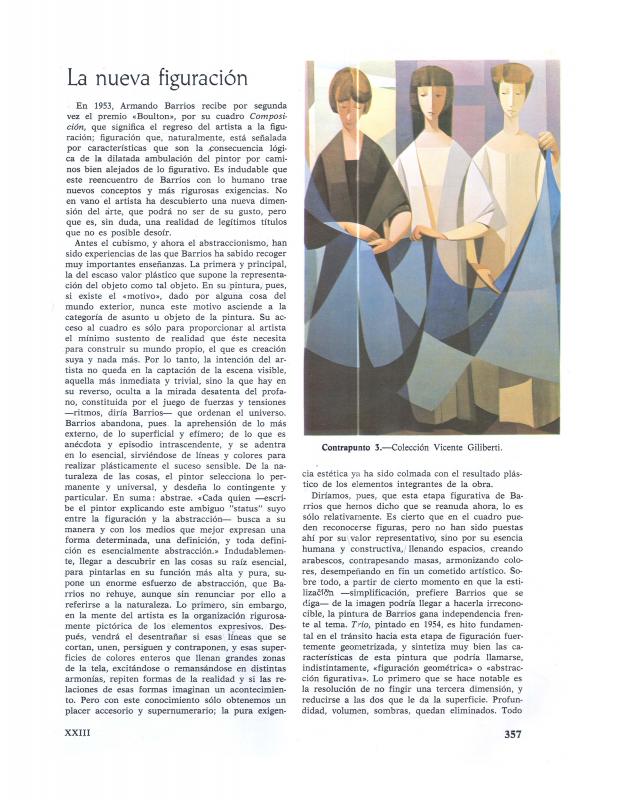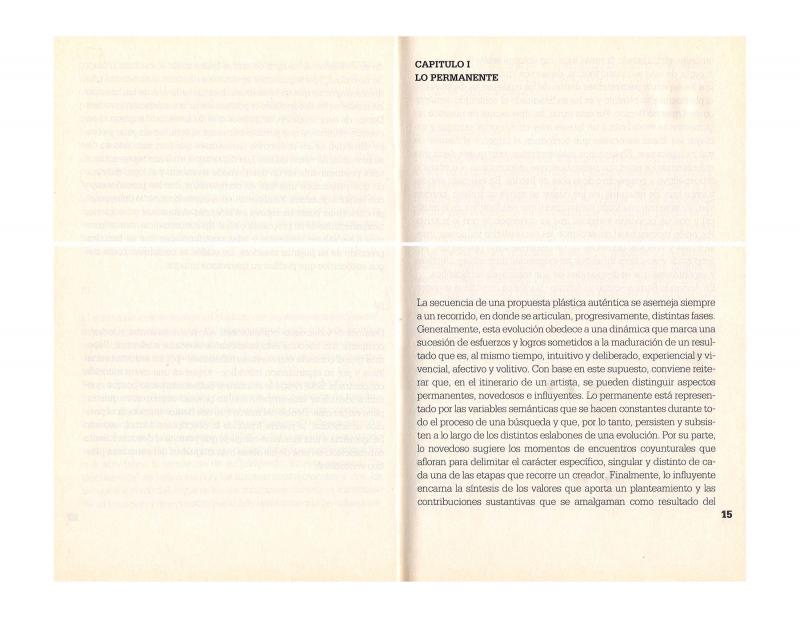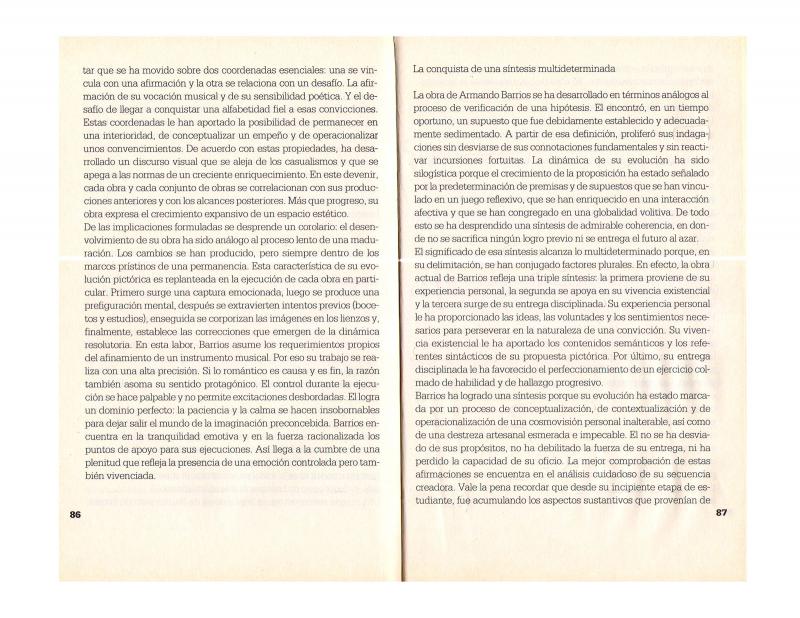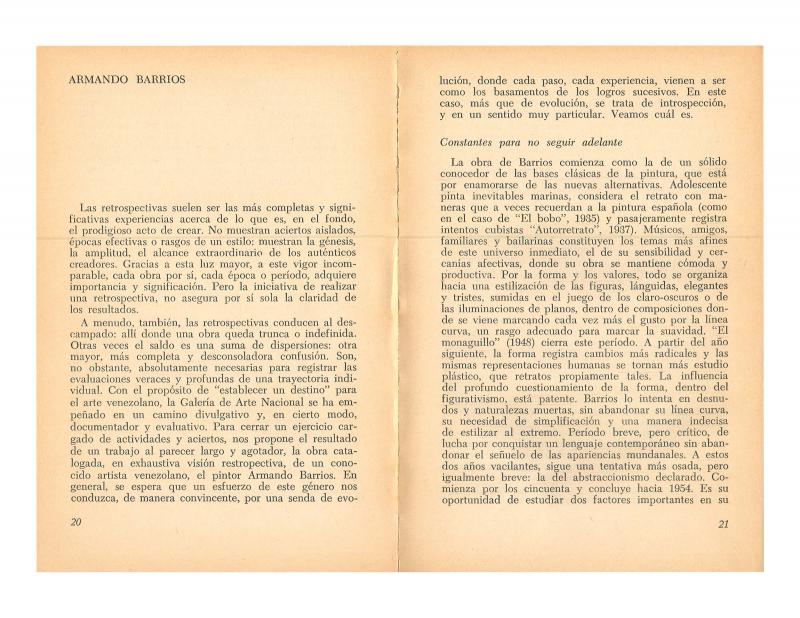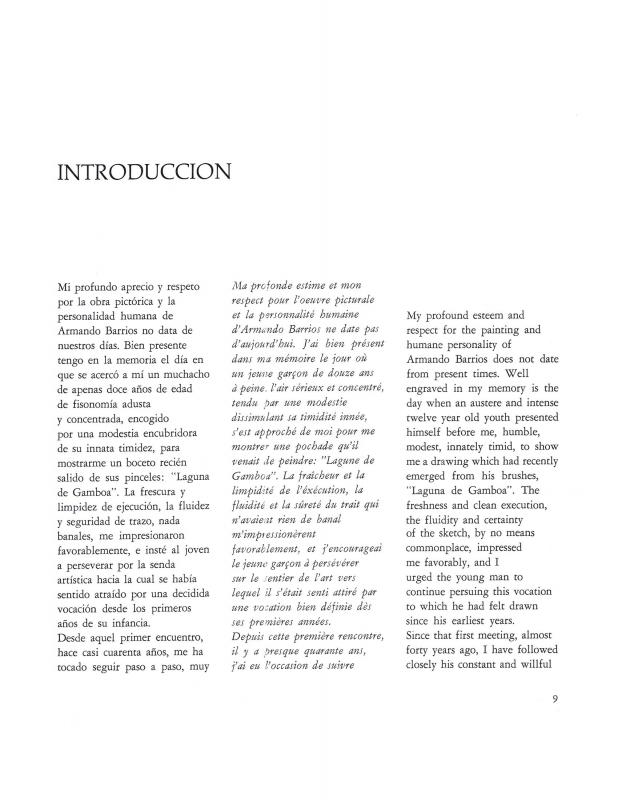This text by writer Rafael Páez—who was charged with writing the thirteenth installment on the collection on Venezuelan painters that was dedicated to the life and work of artist Armando Barrios (1920–1999)— is one of the most extensive essays that had been written up to that time on the painter. The subtitle, “Tradición sin servilismo” [Tradition without Servility] is part of the different approach that the author takes on Barrios throughout the text. Throughout the chapters comprising his monograph, Páez outlines a chronological survey of art, an effort that can be considered one of the first (when viewed in light of Venezuelan art history). In “Tradición sin servilismo” Páez offers an analysis of aspects and techniques in Barrios’s work had been scarcely commented on or studied by art critics up to that time, which included his delving into graphic art, editorial design, fabricating tapestries, set design, costumes, and decorative textile projects—topics outlined by the writer. He likewise touches on the processes and principles of patterns in Asian graphics, which in his opinion, were elements that scholars of his work had not yet considered. Páez does not fully develop his hypothesis, nor does he offer arguments to defend it, although he states that this influence should not be dismissed. The texts that make up the different chapters of this installment contain many illustrations. Nevertheless, the captions for these illustrations omit significant information on the referenced works, as well as their media and dimensions.
[As complementary reading on Barrios’s work, see in the ICAA digital archive a text within the thirteenth issue , “La nueva figuración” [The New Figuration] by Rafael Páez (doc. no. 1157952); the texts “La pintura y la música” [Painting and Music] and “'La conquista de una síntesis multideterminada,” primero y tercer capítulos del libro Armando Barrios. Lo permanente, lo novedoso y lo influyente [“The Conquest of a Multi-Determinate Synthesis,” the first and third chapters of the book Armando Barrios: The Permanent, Novel, and Influential] by Víctor Guédez (doc. nos. 1158033 and 1158065); and “Constantes para no seguir adelante” [Constants for Not Continuing Forward] by Roberto Guevara (doc. no. 1158049). For more, see the “Introducción” [Introduction] to the retrospective exhibition by Juan Röhl (doc. no. 1163701)].

